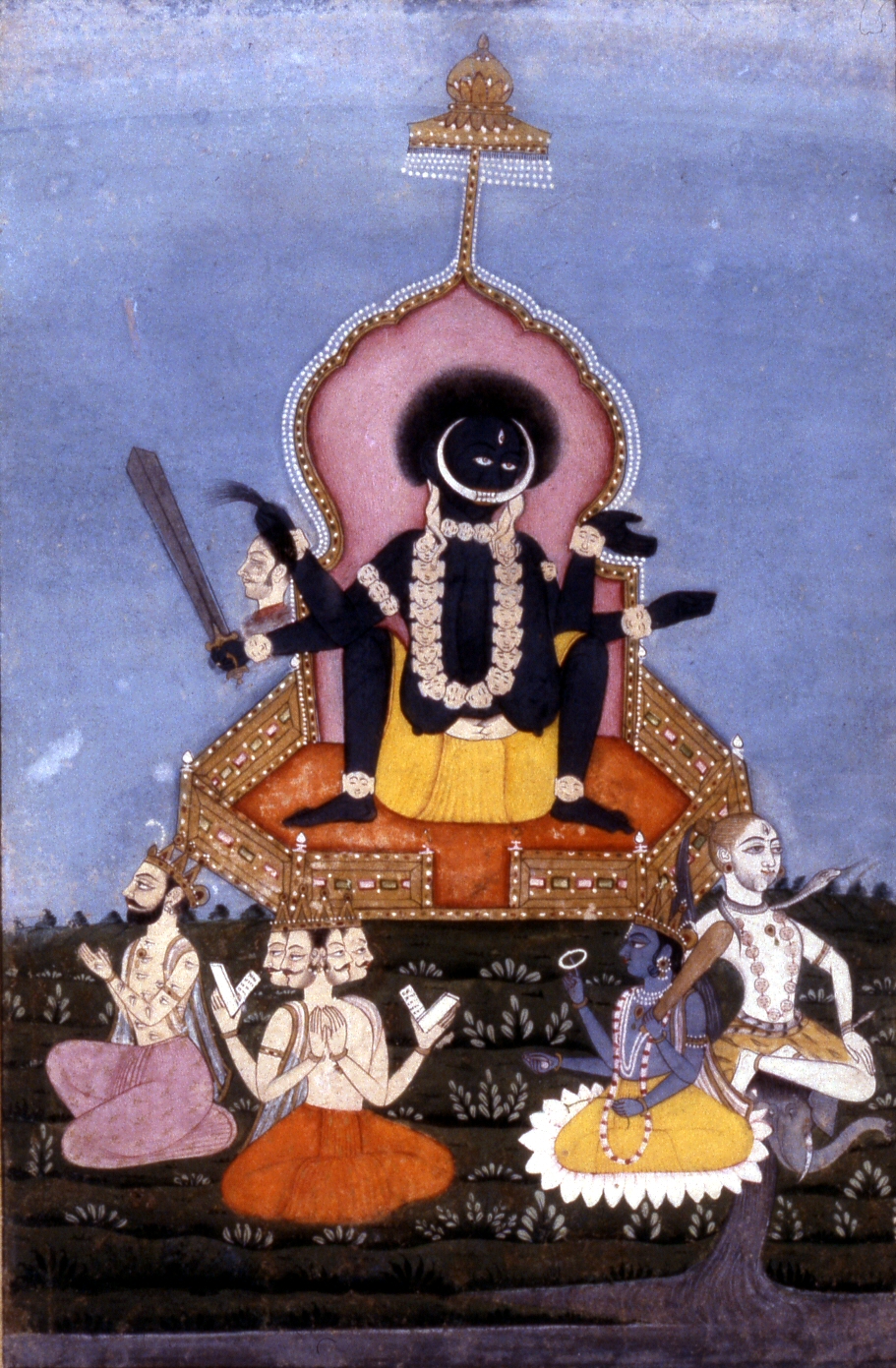Good evening ladies and gentlemen. Cliff Simon here, reporting to
you live from the front-lines of the war between the Pandavas and Kauravas. As
you all know this war has been raging on for many days now with no side being
able to gain a clear advantage.
Things are really ramping now, late in
this day. Taking a look at the battlefield we see the noble Bhishma plowing
through the Pandava lines like a brush fire. There he is on his chariot pulled
by a mighty elephant. By the looks of it, it seems like he just cannot be
stopped. Yes, this is a very bad sign for the Pandavas. They must get this
valiant warrior under control or we could be witnessing the end of the war
right here and now!
Oh what’s this now?! It looks like there is another chariot on a
direct line to Bhishma. We are now getting word that this chariot is carrying
the warriors Shikhandin and Arjuna. This could be a great battle indeed, folks!
They are just about to collide. Oh, I can’t think of a more
incredible match up, save the match of Arjuna and Karna. But wait, what’s this?
It looks like Bhishma has dropped his arms. What could possibly have brought on
this lapse in judgment against such formidable opponents?
It looks like Arjuna is going to take full advantage of this
mistake. Yes, there he goes unleashing arrow after arrow at Bhishma. Down goes
Bhishma! Down goes Bhishma! Oh, what will happen to the Kaurava troops now
without this great warrior?
Bhishma looks to be just barely clinging to life. I don’t think we
can expect him to last much longer.
We are now getting word that a truce has been called for the day.
Each side is now sending in parties to clear their dead and wounded off the
field and we see Karna going out to Bhishma now.
We are going to go in to get a closer look at what will surely be
an incredible conversation.
Bhishma
“We must end this senseless slaughter of kinsmen by kinsmen. We
should return the lands that the Pandavas seek in order to achieve peace. The
Pandavas and Kauravas were once friends and we should strive to return to those
days of prosperity.”
Karna
“Please save your breath my friend.”
Bhishma
“Listen to me Karna. Arjuna is your brother. Avenging my death
would mean the slaughter of your own blood. I cannot ask you to commit such an
act on my behalf and I would urge you to pursue peace instead.”
Karna
“I do not care that Arjuna is of my own blood! He will meet his
end at my hand before this war is done! Now rest and know that Arjuna will pay
for what he has done.”
You heard it here ladies and gentlemen! Karna is out for Arjuna’s
head. Make sure to join us tomorrow for more coverage of the war between the
Pandavas and Kauravas. This is Cliff Simon, thank you for joining us and we
will bring you updates as we get them.
Bhishma being struck down by Arjuna.
Bibliography:
Bhishma Falls from
Indian Myth and Legend by Donald A. Mackenzie (1913).
Authors Note:
I chose to write this story in the style of a breaking news report. I wanted to show what the battle between the Pandavas and Kauravas may have looked like from the eyes of an enthusiastic onlooker. I kept the plot the same from the story with the only change being the language in the conversation between Bhishma and Karna.














